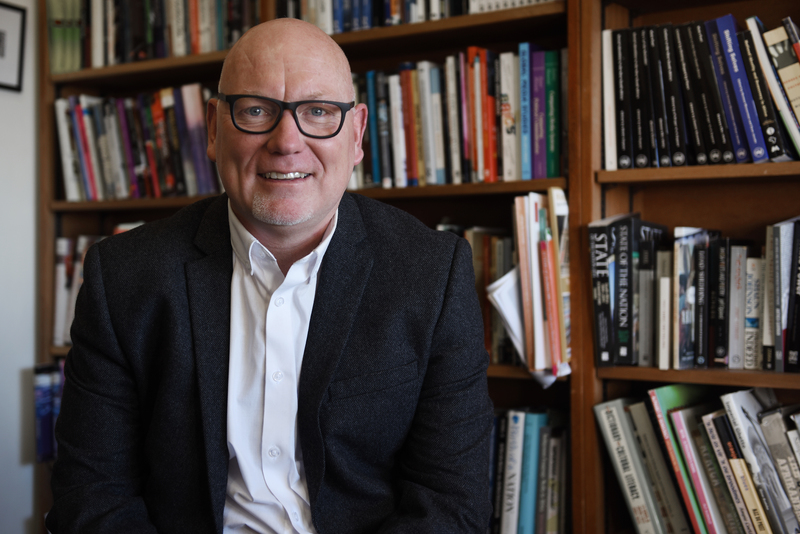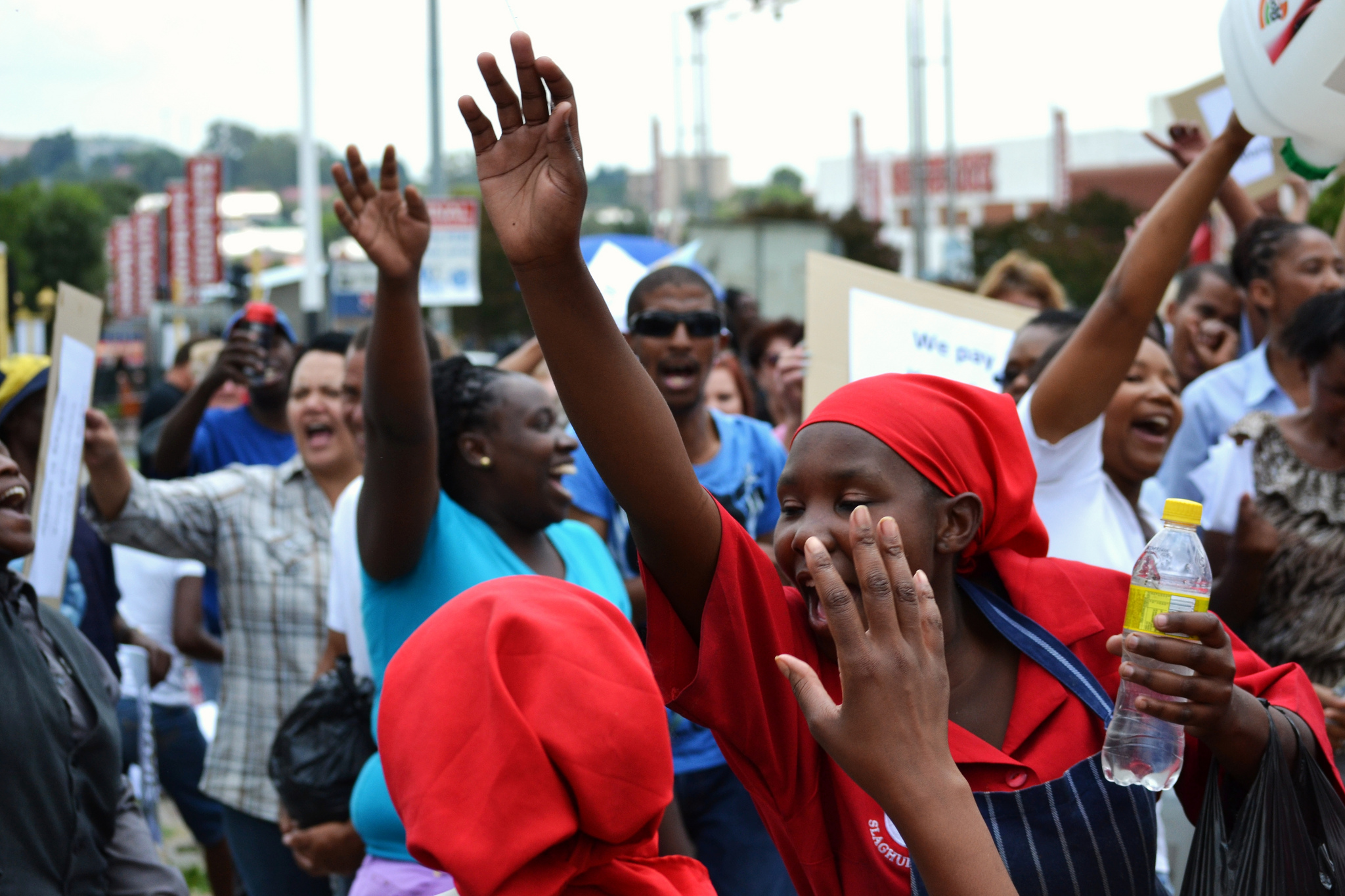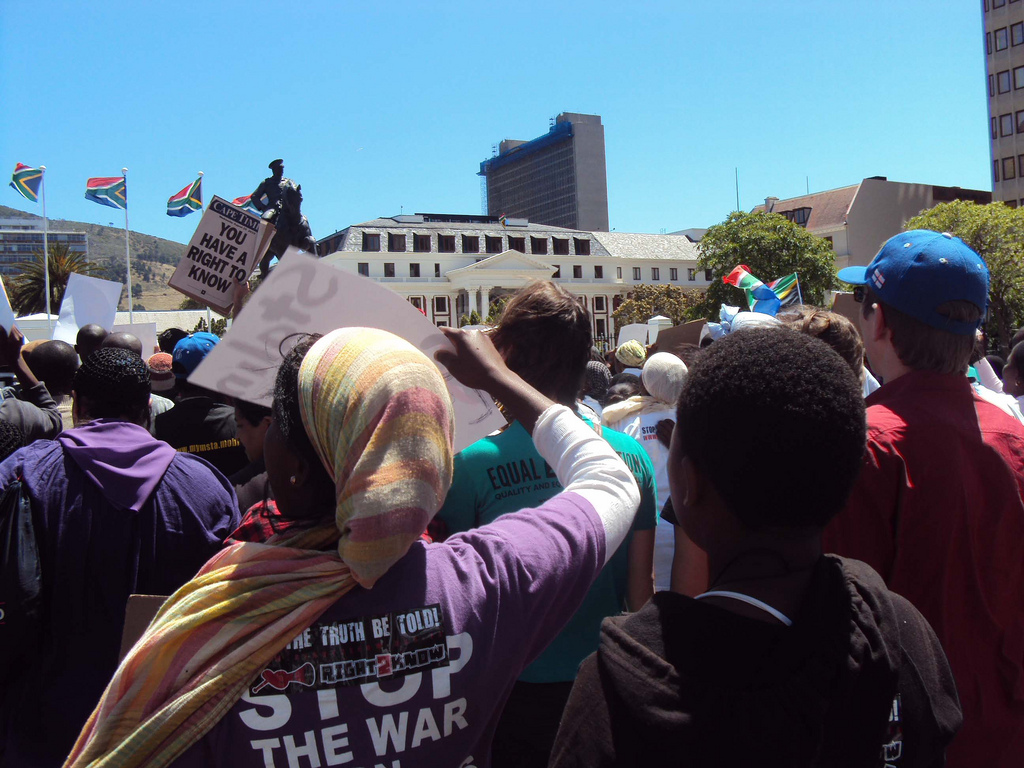Understanding South African media through a global lens
15 August 2017 | Story Natalie Simon.
What values should guide the South African media? How can the media best serve all of society? Professor Herman Wasserman, Director of the Centre for Film and Media Studies, has dedicated his career to understanding – and answering – questions such as these. His work around media ethics and comparative media studies has recently been recognised and honoured internationally.
Professor Herman Wasserman began working as a South African journalist in 1995 – a year in which South African society was trying to redefine itself after the country’s first democratic elections.
“This was really a period of redefinition for journalism in South Africa as we tried to grapple with what our role should be in this new democracy,” he says.
It was perhaps here that the seeds were planted for Wasserman’s illustrious research career. For the past 15 years, he has been working on research around normative ethics and the media: in other words, how value systems guiding the way journalism is practised in Africa can be developed to best fit society.
Critiquing the northern frameworks
While there is no single western media framework, one of the dominant frames that South African media have adopted is that of the watchdog aproach, with a focus on unearthing corruption and holding those in power to account.
“This is, clearly, a very important role in the South African context,” says Wasserman. “Corruption is a problem in our society and courageous journalists are playing an important role in ensuring these dirty practices come out.”
But it can translate into a very antagonistic kind of journalism that defines its primary role as in relation to government. According to Wasserman, we should also be asking questions around whose interests the media are watching out for. Much of South African journalism tends to foreground questions that are mainly of interest to an elite.
“So, in addition to saying we expect our media to play a watchdog role, how can we also foster ethical values of compassion, care and social justice? And how do we do this in a way that strengthens rather than undermines the media’s ability to hold all forms of power – state, corporate and social– to account?”
Wasserman argues that the media in South Africa could also play a role in broadening our understanding of each other, going beyond the narrow interests of the elite. One approach he has found useful in recent years, he says, is that of ‘listening’ as a framework. –actively seeking out and listening to voices that have historically been, and continue to be, suppressed, stereotyped and marginalised.
The need for this kind of listening framework was recently illustrated by the work Wasserman did with his colleagues at the Centre for Film and Media Studies – of which Wasserman is the director – Associate Professor Tanja Bosch and Dr Wallace Chuma, on an international project titled Media, Conflict and Democratisation (MeCoDem). Wasserman led the South African research team that compared the way South African media covered conflicts like community protests and xenophobic attacks with similar instances in other transitional democracies internationally.
“We found these protests are routinely reported only as an inconvenience for the middle classes, often merely mentioned as part of the traffic report. Attempts to engage with protestors, find out why they are protesting, why they don’t opt for other forms of engagement and what has led to the breakdown in trust, are very rare,” he says.
“Listening as an active way of engaging with, and around, conflict is very important in South Africa and we are in a good position to explore ways of reporting that could set an example for media in the global north.”

What the can the north learn from us? And what can we learn from the east?
Wasserman stresses the importance of comparative media studies, arguing that in today’s globalised media environment, questions of media ethics cannot be tackled in isolation.
He has argued in his work that historically, ethical norms for the media have been determined in the north and applied in the global south, without due attention to the role of media in these contexts. In his latest book, Media, Geopolitics, and Power: A View from the Global South, forthcoming in January 2018 from the University of Illinois Press, he argues that the South African media can serve as an example of how global shifts and changing geopolitics play out on the media landscape. This, he believes, can provide material for northern researchers to help understand their own changing environment.
He gives the increased migration and accompying intolerance we are currently witnessing in Europe and the USA as an example.
“Media in these countries are now confronted with questions around how to deal with conflicts arising from cultural differences,” he says.
Because of its colonial history, cultural and ethnic conflict has been a challenge in Africa for decades. Wasserman argues that it might be useful for northern researchers to look at what has and has not worked on this continent, particularly around journalism for peace building and negotiating cultural identities.
Another interesting angle on questions of global media ethics in relation to local specificities has been his work on China–Africa media relations. Wasserman has been the principal investigator on a project, funded by the National Research Foundation, to investigate how China’s increased media presence on the continent has prompted renewed questions about press freedom and journalistic value systems. “The media has been a key part of China’s soft power initiatives in Africa,” he says.
This has forced a reflection on the value systems underpinning African journalists’ work and how this may differ from the Chinese approach to journalism, which some have called ‘constructive journalism’.
“This is not to say the Chinese model is preferable,” says Wasserman. “Rather it prompts us to ask deeper questions about what the best normative framework for African societies would look like, the history of how we have arrived at current normative approaches, and reflect critically on the assumptions underlying these.”

Significance of the Georg Forster Award
Wasserman will have the opportunity for a great deal of further comparative work as a result of winning the Georg Forster Research Award by the Humboldt Foundation in Germany. The award includes an invitation to undertake a period of research in Germany, which Wasserman plans to use by spending his sabbatical in 2018 at the Ludwig-Maximillian University of Munich (LMU).
Wasserman is greatly looking forward to fleshing out some of his research questions with colleagues at the LMU, “South African media research tends to be quite parochial. This grant offers an important opportunity to study African media within a broader, global context.
“If we say we want to ‘decolonise’ media research, that cannot mean to become more inward looking or rejecting epistemologies from elsewhere out of hand. Instead, it requires us to examine the global power relations impacting upon our local situation, the history of how we got to where we are, and the ways in which we can speak back to global discourses.”
He also notes the significance of this award beyond the personal. “Up to six of these awards are given out annually, and they are not discipline-specific,” he says. “For me this award really recognises the importance of media research in a globalised world.”
Main image Herman Wasserman by Robyn Walker.
Image 2 Standerton service delivery protest by Jan Truter, courtesy creative commons license, via Flickr.
Image 3 Right2Know march against secrecy bill by Mediatorr, courtesy creative commons license, via Flickr.
 This work is licensed under a Creative Commons Attribution-NoDerivatives 4.0 International License.
This work is licensed under a Creative Commons Attribution-NoDerivatives 4.0 International License.
Please view the republishing articles page for more information.
Research & innovation





































